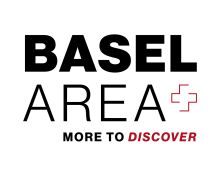
The FIT is supporting three new Vaud-based start-ups. TofuPilot is receiving a Digital Seed loan of CHF 50,000 for its open-source kit and analysis platform, enabling manufacturers to deploy high-performance, affordable test systems. Badger has been awarded a Digital Grant of CHF 20,000 for its loyalty card digitization platform, as has DiploTools and its specialized software for the diplomatic sector. Moreover, four promising impact projects have also been granted funding.
With the growing complexity of high-value-added electronic products, guaranteeing their quality in production is becoming a major challenge. Manufacturers rely on automated test systems to detect defects and ensure the conformity of each unit.
TofuPilot enables manufacturers to deploy high-performance, affordable test systems. Its open-source development kit speeds up implementation, while its turnkey analysis platform identifies the sources of defects in production in real time. TofuPilot has already been adopted by more than a dozen manufacturers in cutting-edge fields such as robotics, medical devices and aeronautics, and is currently being tested by more than 30 other partners.
The CHF 50,000 loan from FIT will enable TofuPilot to strengthen its teams to meet this growing demand, and to expand its presence in the United States from 2025.
Badger and its loyalty card digitisation platform
Building customer loyalty is a full-time job for retailers, who are already overloaded. They must keep customers engaged with loyalty programs that are often unattractive, time-consuming and impractical. This wastes time and money developing an online presence and sending out promotions that are often poorly targeted and with little return on investment.
To meet these challenges, Badger has designed a mobile loyalty system - in the form of an intuitive mobile application - dedicated to SMEs, focused on strengthening the link between the retailer's brand and its customers. For retailers, the application simplifies the management of loyalty programs and offers a range of tools for maintaining and developing their community. And thanks to a ‘gamified’ experience that delivers simple and attractive ‘rewards’ to customers to build loyalty, Badger improves customer engagement.
The CHF 20,000 Digital Grant awarded by FIT will enable Badger to finalise and launch the first version of its digital application.
DiploTools and its specialized software for diplomats
When it comes to digitalization, diplomacy is not a very good pupil. Many diplomats use outdated tools - Excel spreadsheets, paper archives, WhatsApp messages and scattered emails - which slow down their work and cost foreign ministries around 100 million dollars a year.
DiploTools proposes to revolutionise these archaic processes, digitising them to make them faster and more efficient. The company designs specialised software for diplomacy, with its first solution dedicated to managing elections and campaigns within international organisations. Their solution digitises workflows, centralises data and automates tasks. This platform is the first in a series of tools incorporating modern technologies - such as artificial intelligence - aimed at optimising the efficiency of foreign ministries.
With the CHF 20,000 Digital Grant awarded by FIT, DiploTools will be able to expand its customer acquisition efforts and work on its product.
Support for innovative impact projects
Earlier in November, four new innovative projects have been awareded CHF 10'000 FIT Impact Grants to support their development and growth.
- Birds&Co: Spearheaded by EPFL and ECAL students Jérémy Suchet and Jeremy Loup, the Birds&Co project introduces "Léman 1," a floating platform that prevents birds from nesting on boats by providing an alternative habitat. This practical solution benefits conservation efforts while allowing boat owners year-round use of their vessels.
- GYNECARE+: Lirjeta Maxhuni developed GYNECARE+, an innovative garment for gynecological exams, allowing women to stay covered during consultations. With strategically placed openings, the solution already supported by H4 ensures warmth, discretion, and easy access for doctors, improving comfort and privacy during medical examinations.
- TOCx: Alexander and Ryan Chapuis, supported by UNIL's UCreate program, created TOCx, a mobile app for mental health support tailored to chronic disorders like OCD. The app offers personalized CBT exercises, symptom tracking, and virtual consultations, reducing dependence on in-person therapy and addressing issues like waiting times and costs.
- Slostr: A product of EPFL's Changemakers program, Vladimir Fayt's Slostr platform promotes sustainable, low-carbon travel by enabling users to share slow travel itineraries and stories. It provides detailed route mapping for bike, train, and bus trips, along with carbon footprint comparisons, encouraging eco-friendly travel choices.


 The new Swiss Venture Capital Report was published on 26 January. It analyses 304 financing rounds closed in 2020 and includes further article such as an interview with Michael Hengartner, President of the ETH Board, and a list of Swiss "soonicorns".
The new Swiss Venture Capital Report was published on 26 January. It analyses 304 financing rounds closed in 2020 and includes further article such as an interview with Michael Hengartner, President of the ETH Board, and a list of Swiss "soonicorns". 




















































Please login or sign up to comment.
Commenting guidelines